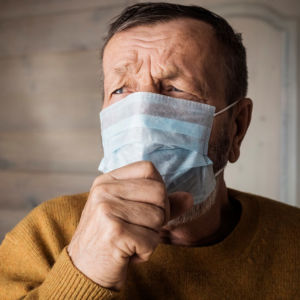We’re all armchair epidemiologists now. And for the sake of civil discourse and public safety, it’s good to keep that in mind.
I recently woke up and learned it was “July,” which seemed odd because the last time I ventured out to my nearby office was during a month called “March.” And apparently — get this — there were three other “months” in between. Strange times.
As an economist who studies health and healthcare, I have been gulping down vast quantities of data and observations on the ups and downs of the COVID-19 (coronavirus) pandemic. But so has practically everyone else in the world.
Given that this is the most disruptive, destructive series of events since World War II, that’s no surprise. For all of us, life since February has been a firehose of data, anecdotes, opinions, admonitions, accusations, threats and questions. Hundreds of thousands have died worldwide. The world economy sustained a massive hit.
And in this, the Age of Adamancy, opinions are strong and heavily politicized. These strong, politicized viewpoints make it difficult for people to accept and adapt to new information.
Australian comedian Mark Humphries captured the mood of the times well in a television skit (available on YouTube under the title “Armchair Epidemiologist”). If you feel as though your opinions on COVID-19 have grown too strong, too adamant, too political, this brief video is a good antidote.
Humphries’ character busily showers others with his “expert” opinions on COVID-19 and then explains: “I graduated from the University of Wikipedia. It’s usually a two-day course, but I had to go part-time due to my ongoing ‘Tiger King’ commitments.”
Along the way, he publishes a “peer-reviewed text message to friends and family,” which means his girlfriend corrects his generally error-ridden spelling of “epidemiologist.” (It is, in fact, difficult to spell in a hurry.)
I’ve spent the past 25 years studying healthcare and policy. I’ve had at least one semester of epidemiology in graduate school, along with numerous courses involving medical statistics. I’ve taught around medical centers for 19 years. But I try to keep in mind that I am still an amateur in this field.
Facebook, Twitter and other social media are awash with armchair epidemiologists. They are adamant and often have highly political opinions about masks, with some viewing them as essential outdoor gear at all times and others dismissing them as hoaxes perpetrated by control freaks. (I don’t know whether either statement is true.)
Armchair epidemiologists are adamant about which governors have acted prudently and which have acted irresponsibly. Remarkably, the opinion almost always lines up with the tweeter or poster’s own political affiliation. For those skewing leftward, Texas and Florida are pilloried for their rising infection rates.
Rightward folk look to those states’ low and falling death rates, comparing them to, say, New York’s early and towering wave of death. (I have some opinions about which governors have done well and which have done poorly. But they cross party lines and shift as new data and new analyses pour in.)
There’s a vast chasm between those who feel rising infection rates result from Republican governors opening beaches or from street protesters.
And the same chasm divides those who know with absolute certainty whether there is a difference in communicability between, say, a Trump rally in Tulsa and a protest in Richmond, Va., streets. (I don’t know whether there’s a difference. Being past 65, I wouldn’t have gone to either.)
Other than angering half of your Facebook friends, the biggest problem with adamancy and purported certainty is that they lock people into positions and behaviors and close minds to new evidence. Public health officials dismissed the necessity of masks early on and then reversed themselves.
That’s OK. That’s also how science ought to work.
New data ought to alter one’s perceptions of what does or does not seem to be true. It’s probably true that every major scientific finding is important because it reverses what was previously thought to be true.
This tendency to set one’s views in stone isn’t just a problem for amateurs. Physicist Max Planck said that, “Science progresses one funeral at a time.”
That thought is especially appropriate in the time of COVID-19.

